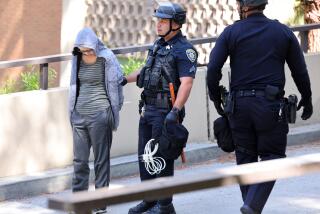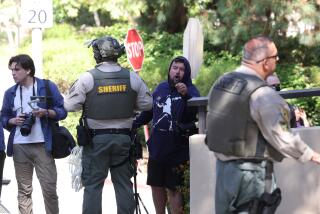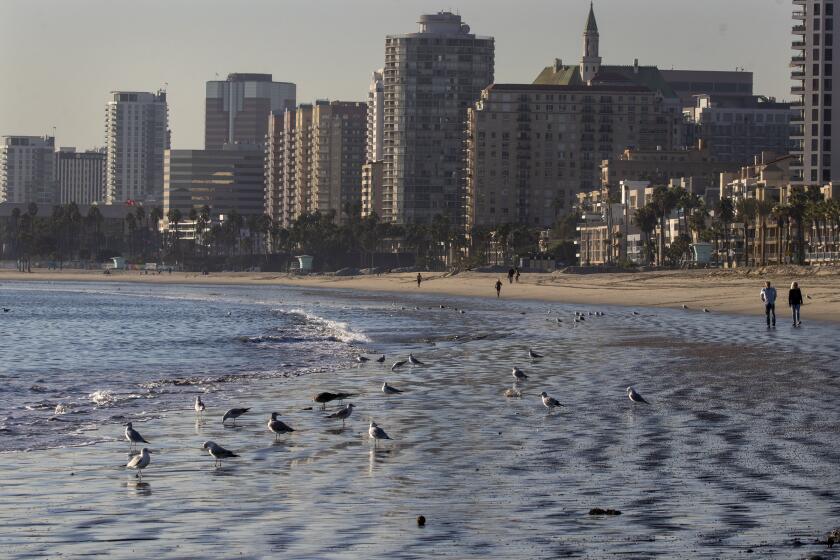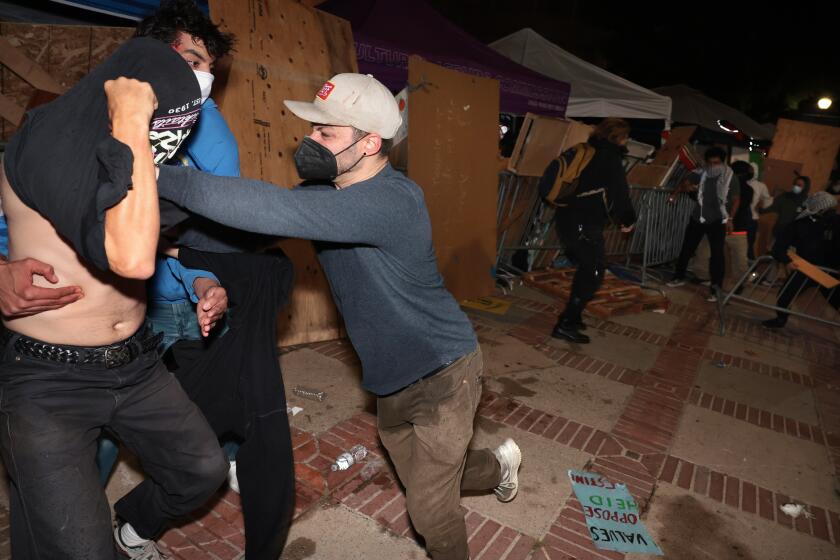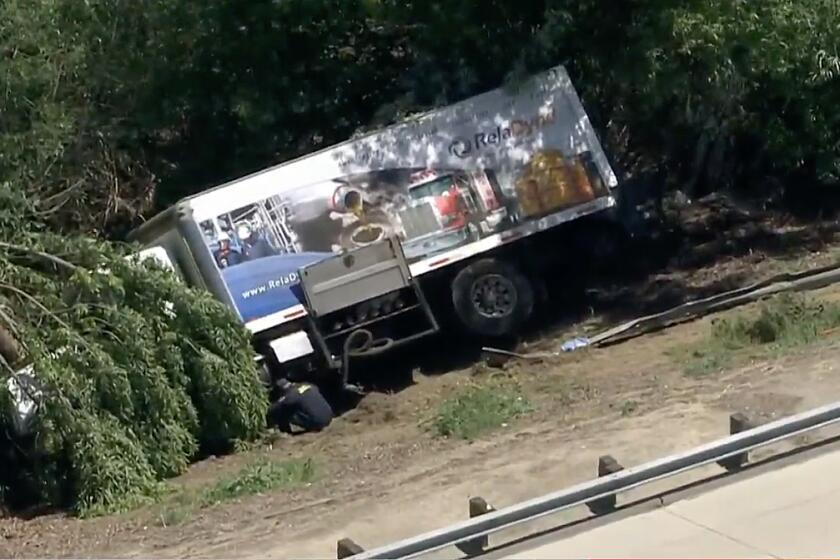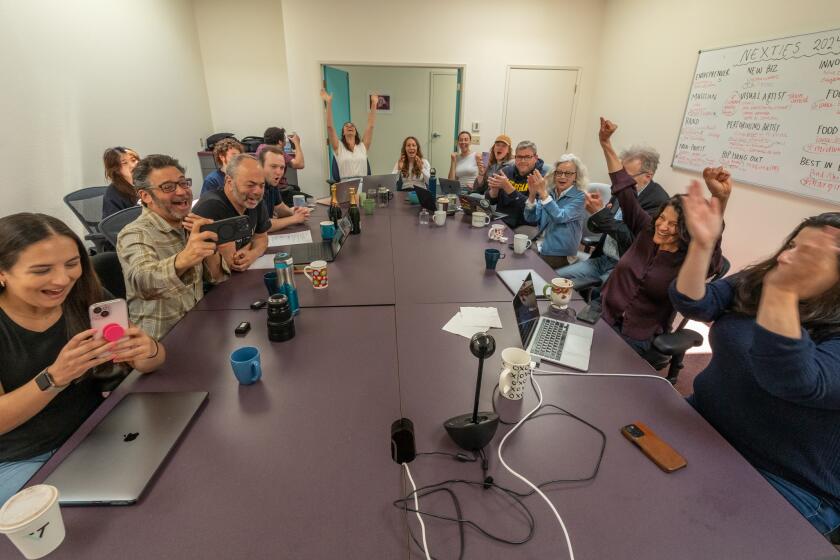L.A. can bar Hare Krishnas from panhandling at airports, court rules
Los Angeles and other California cities and counties may bar the Hare Krishnas and other groups from panhandling at airports, the California Supreme Court unanimously ruled Thursday.
The state high court, reviving a 1997 Los Angeles ordinance aimed at LAX, ruled that bans on soliciting at airports do not violate state constitutional guarantees of free speech. Lawyers for Los Angeles said that about 100 individuals representing at least 15 groups solicit money regularly at LAX.
Thursday’s ruling is expected to lead other airports to consider ordinances similar to L.A.’s law, which would ban solicitations in the interior terminals, parking lots and adjacent sidewalks.
Airports in San Francisco, Oakland and San Diego and California city and county associations sided with Los Angeles in the case. The ACLU sided with the International Society for Krishna Consciousness of California, which challenged the Los Angeles law and won an injunction against its enforcement in federal trial court.
The U.S. 9th Circuit Court of Appeals later referred the case to California’s high court, which has final say over matters of state law. The state court said that panhandling is “far more intrusive” than leafleting and other kinds of communication.
“Travelers often are in a hurry, and the airport often is crowded,” Justice Carlos R. Moreno wrote for the court. Panhandling may increase congestion, cause travelers to miss flights, and subject them to possible intimidation and even fraud, he said.
The Hare Krishna society has “ample alternative means of conveying its message,” Moreno wrote. “It can distribute literature and speak to willing travelers. It can even seek financial support, as long as it does not request the immediate exchange of funds.”
David Liberman, an attorney for the Hare Krishnas, called the decision “disgusting” and predicted that it would encourage shopping centers and other similar forums to ban soliciting.
“They finally get rid of the Hare Krishnas, which is what they wanted to do all along,” Liberman said. “They just want to get rid of people who make them feel uncomfortable.”
The 9th Circuit had asked the state court to determine whether an airport was a public forum for free expression under state law. But the Supreme Court said it did not need to reach the question to find that the LAX ban was legal.
In concurring opinions, Justice Joyce L. Kennard said she would have ruled that airports are a public forum, whereas Justices Marvin R. Baxter, Ming W. Chin and Carol A. Corrigan would have ruled they are not.
“This decision is going to clear the path for us to take another significant step in providing better customer service at LAX,” said Gina Marie Lindsey, executive director of Los Angeles World Airports. “Solicitors have been a real problem at LAX for years. One of the most common complaints we get involves aggressive solicitations.”
At the nation’s third-busiest airport, solicitors often can be seen at the Tom Bradley International Terminal, where they descend upon arriving foreign travelers who don’t speak English well.
Some have posed as official LAX guides or ambassadors, offering directions and carrying airport maps taped to the back of their clipboards. They have even mimicked the guides’ hats and jackets.
Pending the outcome of the case, Los Angeles has required airport solicitors to apply for permits that restrict them to certain parts of the airport. That requirement was intended as a temporary measure until the constitutionality of the ban was decided.
The case will now return to federal court, and lawyers said it may be several months before LAX can enforce the ban.
Airport police say they arrested 84 solicitors at LAX between March 2009 and March 2010, or about seven a month.
They are charged under the city’s municipal code, which prohibits aggressive solicitations.
San Francisco International Airport also has “a problem” with solicitors and now relegates them to “free speech booths,” said Deputy San Francisco City Atty. Danny Chou, who argued on behalf of the Los Angeles law.
He said San Francisco airport officials may now “consider what options they have to best ensure their travelers don’t get unduly harassed and also to ensure airport security.”
More to Read
Start your day right
Sign up for Essential California for news, features and recommendations from the L.A. Times and beyond in your inbox six days a week.
You may occasionally receive promotional content from the Los Angeles Times.
